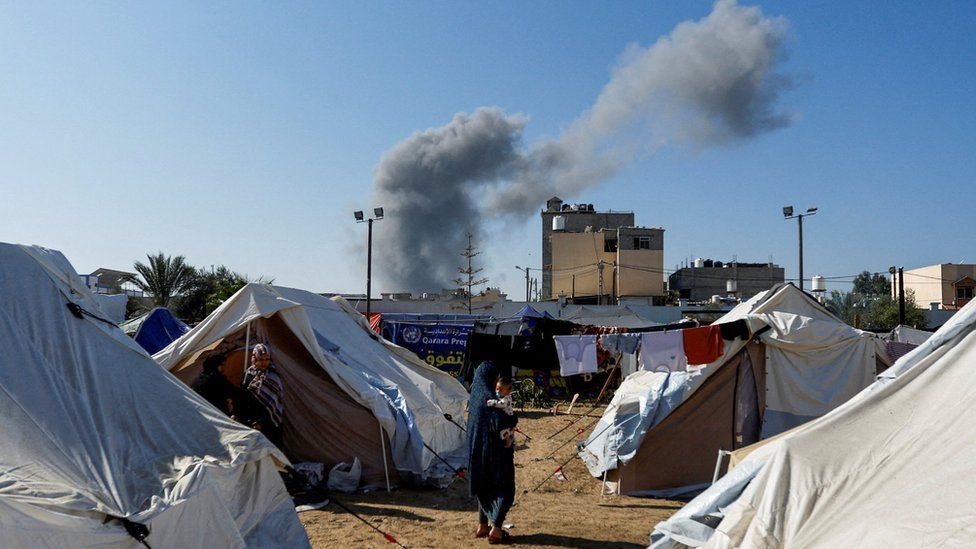-

-
-
Loading

Loading

UN aid agencies have announced that they are reducing their operations in the Gaza Strip due to a depletion of their fuel reserves. The limited fuel that remains is being used to maintain the water supply in the southern part of the region, where hundreds of thousands of people are seeking shelter from Israeli airstrikes. However, these fuel reserves are expected to run out on Thursday. The agencies have also scaled back their support for overwhelmed hospitals and bakeries that are responsible for providing food to the displaced individuals. Juliette Touma of the UN agency for Palestinian refugees, Unrwa, described the situation in Gaza as unprecedented, with two million people being severely affected by the lack of assistance from outside sources. The Israeli bombing campaign in Gaza has resulted in a cutoff of electricity and water, as well as the halting of food, fuel, and other goods imports as retaliation for a cross-border attack by Hamas on October 7th. Since then, the Gaza health ministry, run by Hamas, has reported over 7,000 deaths and warned of a collapsing health system, with only a third of hospitals functioning and the rest only able to treat emergency cases. Despite the limited aid deliveries that have crossed the border from Egypt, Touma called them a mere fraction of the overwhelming needs. Prior to the beginning of the war, around 500 trucks were allowed into Gaza each day, whereas now only 74 have been able to enter since Saturday. Touma emphasized that Unrwa is desperately in need of a fuel shipment to continue providing assistance to the 629,000 displaced people currently seeking refuge in their facilities. Most of these individuals had fled their homes in the northern region of Gaza after being instructed by the Israeli military to do so for their own safety. She expressed concern that Unrwa is facing being banned from fulfilling its mandate, despite being the largest humanitarian organization. Israel has refused to allow fuel deliveries, citing concerns that it could be used for military purposes by Hamas. An Israeli military spokesman stated that it doesn't want Gaza's hospitals or the entire region to run out of fuel, but suggested that Unrwa should request fuel from Hamas, who allegedly has large reserves stored near the Egyptian border. The UN's regional humanitarian chief acknowledged Israel's concerns but stated that they had no information regarding additional fuel accessible to Hamas. Efforts are ongoing to work with Israel and secure enough fuel for humanitarian operations. The lack of fuel would have severe consequences for Gaza's hospitals, rendering them unable to care for patients receiving dialysis treatment, premature babies in incubators, and those in intensive care units. Water desalination and pumping stations would also cease to function. This would lead to a scarcity of clean drinking water and result in issues with the sanitation system. Additionally, the Israeli military has been accused of continuing to advise evacuation without providing viable alternatives for people who have nowhere to go or are unable to move. The Israel Defense Forces have alleged that Hamas is using civilians as human shields, preventing them from evacuating to the southern part of Gaza. They claim that Hamas utilizes roadblocks and other methods to hinder evacuation efforts.